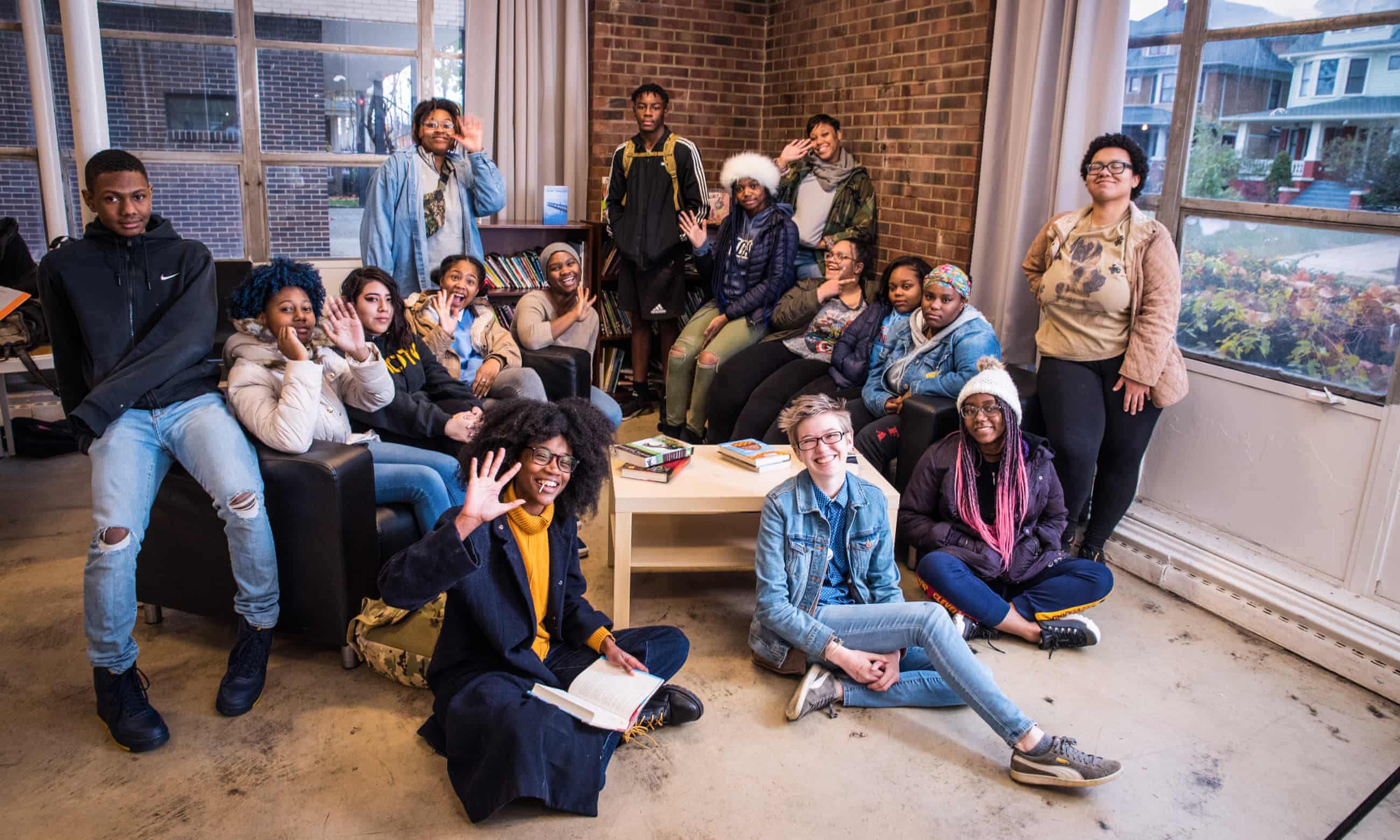
'Natural genius is to be respected': inside Cleveland's space for teen poets
by Adrian HortonIntergenerational incubator and creative writing program Twelve Literary Arts seeks to to inspire young people to participate in democracy
“Hey y’all, I’m Tai,” 15-year-old Tai-Charle’ Walker says into the single microphone. “Hi Tai!” shouts back the audience for tonight’s spoken-word open mic event. “What am I made of?” Tai begins, and then, to cheers, she lights whatever trepidation she has on fire: “You asked a simple question, but get many different complex answers. I myself am made up of pain.”
Pain from the historical trauma of slavery, the “crooked cops’ nightstick”, violence on her street. “I am the moon – everybody wants to get close but once they actually do they have no clue what to do … You ask me what I be? Between you and me, you’ll never know what I’ll be.”
Over the course of nearly two hours, nearly all of the roughly 25 attendees, almost entirely people of color aged 15 to 21, take a turn or two at the mic. Poems crackle with fury and wonder, sparking cheers and several “hmms” of deep recognition as they decry racial injustice, thwarted dreams or just straight up teenage anxiety.
The session is an after-school fellowship for high school students organized by Twelve Literary Arts, an intergenerational incubator and creative writing program in the greater Cleveland area.
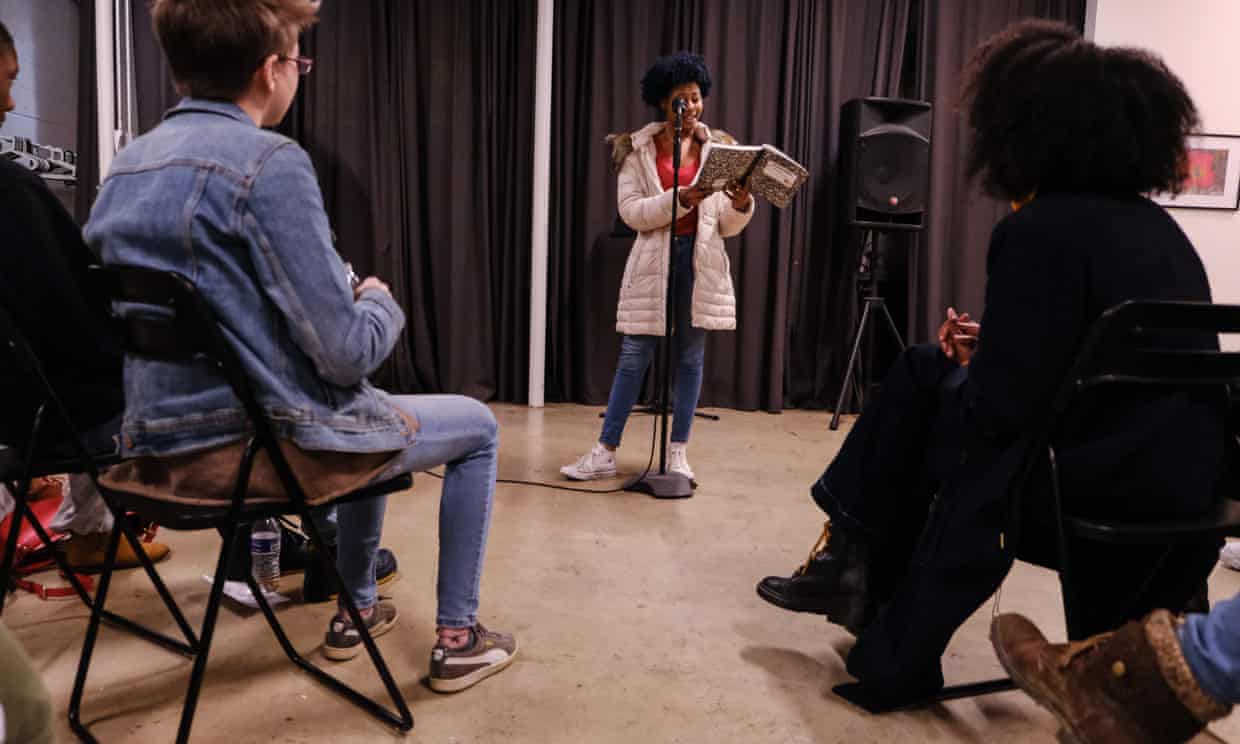
Twelve Literary Arts and its umbrella of programs is the brainchild of Daniel Gray-Kontar, an arts education activist, former national poetry slam champion and rapper seeking to provide opportunities, connection and mentorship for young writers. The organization is one of Cleveland’s “City Champions”, people or groups nominated by readers of the Guardian and the Plain Dealer, Ohio’s largest newspaper, for their resilience and commitment to community investment.
Twelve Literary Arts is ambitious in scope, with outreach and programs for potential poets ranging from self-taught adults to high-school English students in partner public schools. It honors “the intergenerational necessity of what we do,” said Gray-Kontar.
You cannot compartmentalize youth and adult development, he said, because “somebody has to teach the youth, and there has to be a particular emphasis and growth around how you teach young people.”
Thus, at one end, Twelve hosts a fellowship for seven to 10 adults in north-east Ohio to receive a funded once-a-week workshop and mentorship. On the other end, instructors with the organization work within select English classes in local public schools to introduce the concepts of poetry and creative expression in a safe, youth-directed space.
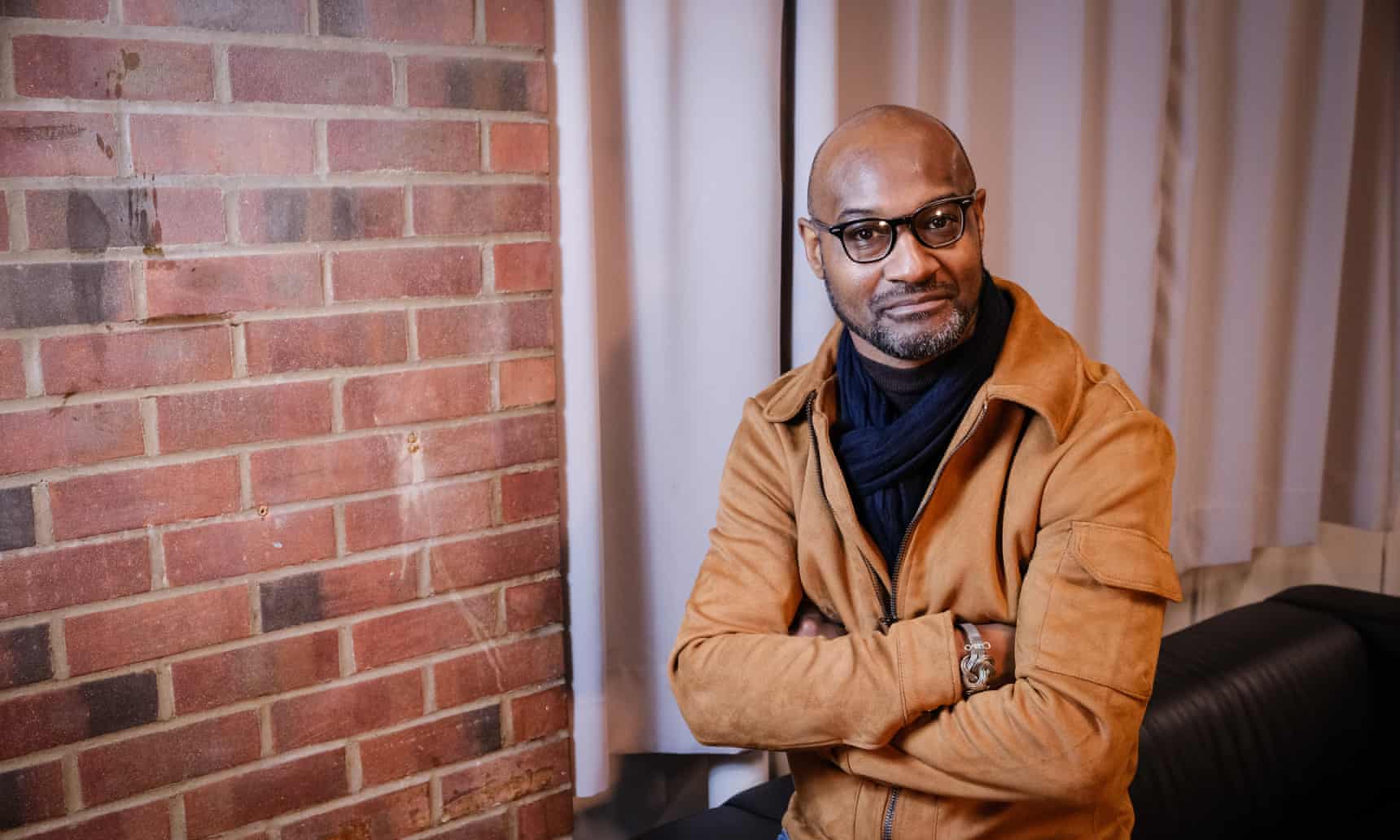
Established as a nonprofit in 2016, Twelve’s roots go back farther, to Gray-Kontar’s time as the chair of the Literary Arts Department at the Cleveland School of the Arts; many of the program’s first participants and instructors-in-training were his former students, who now contribute to the heart of the program: the after-school fellowship.
One of those former students is Raja Belle-Freeman, who initially met Gray-Kontar as a sophomore in high school at a free library poetry workshop. Now a junior at Cleveland State University, Belle-Freeman represents what Gray-Kontar calls “the essence of Twelve Literary Arts”, having risen from fellow to intern to support instructor to one of the after-school workshop’s leaders.
At the open mic, Belle-Freeman approaches lightly, but her words cut deep. “When my mother – I mean Santa Claus – bought me that big red hat, it wasn’t long before I wore it everywhere, every day,” she recites. “You always knew I was coming. You always knew exactly who I was. It was beautiful. That was an interesting year. Tamir Rice was killed that year.”
It’s a reference to the 12-year-old black boy shot by police in Cleveland in 2014 for wielding an airsoft gun. His death brought intense national attention to the city’s police department, which soon after was accused by the Department of Justice of a wide range of civil rights violations.
“When no one at school wanted to say his name it was like I could feel him dying twice,” Belle-Freeman continues. “When everyone at school said ‘black boy’ instead, I could feel myself dying slowly.”
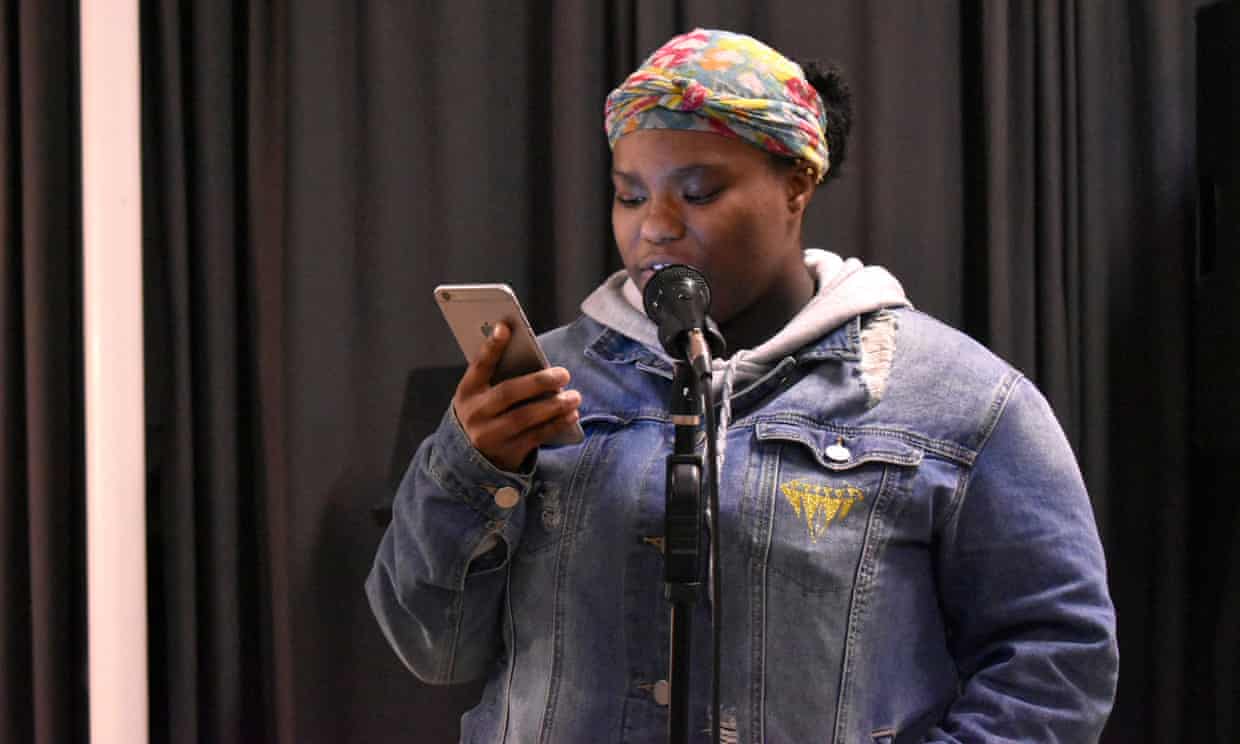
Cleveland, like many mid- to large size cities in America, has its struggles with violence, racial segregation and institutional decay. The Lake Erie port city’s economic and cultural prime, so the narrative goes, was in the past century, when prosperity undergirded the founding of cultural institutions such as the Cleveland Museum of Art and the internationally renowned Cleveland Orchestra.
But the city also has a tradition of homegrown infrastructure of grassroots arts groups – writing circles, public libraries with free programs, and independent bookstores. Twelve Literary Arts adds to that network a hub specifically for writers of color, fostering a new generation of not just artists but arts administrators, teachers and civic leaders.
Part of that work is rethinking what a classroom space can represent for students often mired in underfunded schools or restricted by the traditional white male literary canon.
“We believe that everybody in this space is an expert in their own experiences,” Gray-Kontar said. “And because they’re experts in their own experience, what that means is that they bring a natural genius into the classroom that is to be respected.”
It’s less teacher-student than every person as a teacher of their own experience: “Part of what we have to teach our teachers is how to unlearn the idea that you are the sole expert in the space.”
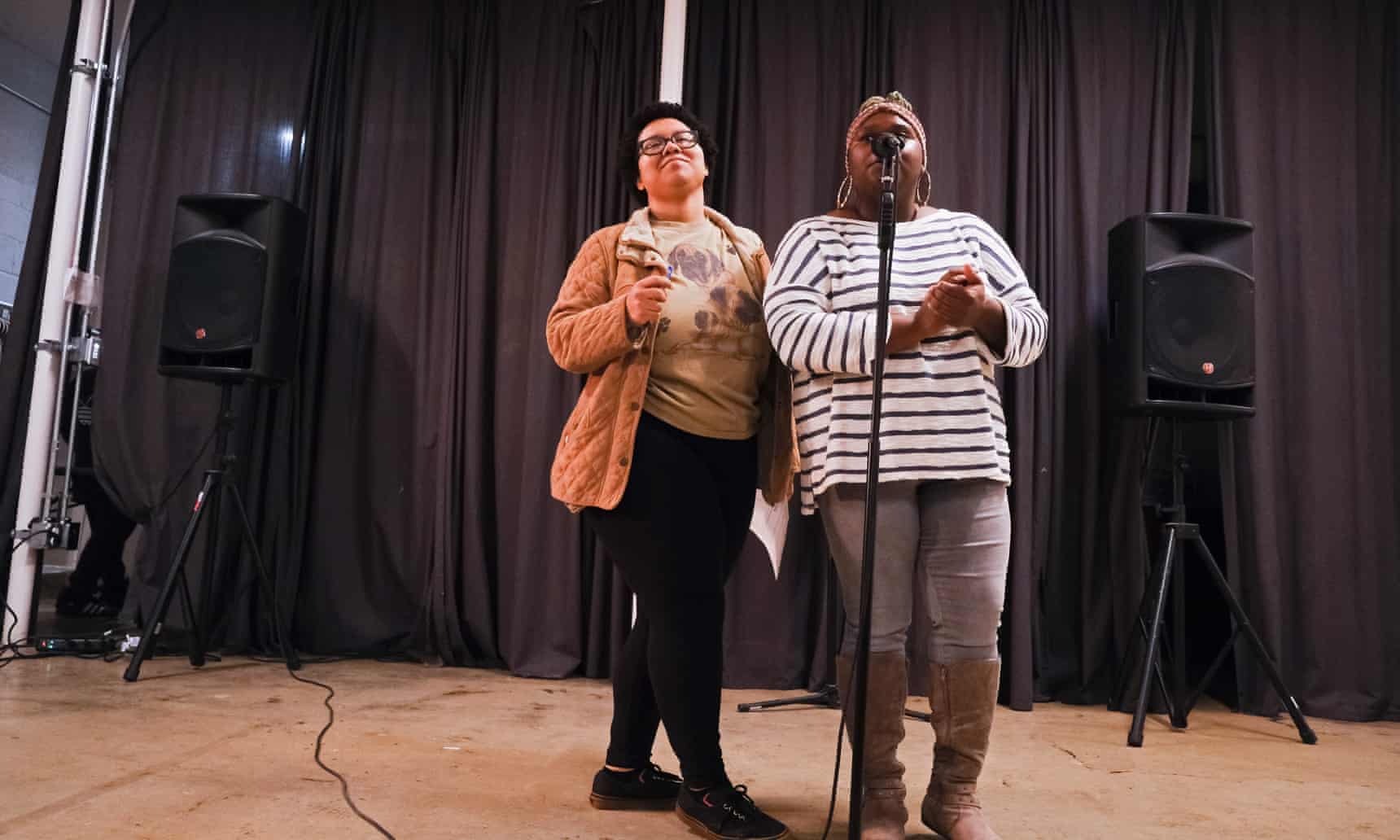
Facilitators provide the space and framework (and also, for the fellowship, food and rides), and then “just get out of the way,” said Gray-Kontar. Each fellowship session begins with a ritual called community candle, essentially a guided meditation, grounded in the program’s core of mindfulness – arrive and drop whatever it is you carried in the door with you. Put your phone down. Begin again.
The after-school fellowship meets twice a week from October until May. The majority of the time, the program offers lessons on a certain technique, literary device, writing style or particular author, followed by a free-writing period to manifest said lesson, or whatever else comes to mind. Then, crucially, there are “much-loves” – affirmations such as “You’re rocking that orange sweater today, it’s giving me life” or “I really felt what you wrote today about your brother, thank you”.
Once a month the fellowship hosts the open mic, where students can share their work.
The subject material can certainly be dark – some of the evening’s poems referenced gun violence or depression – but members of Twelve said the program helps to expand one’s sense of creative expression beyond an open wound; the darkest narrative is not the only or most important one.
“I think Twelve really works against the fetishization of sadness,” said Kai Gyorki, 16, who as an intern with Twelve attended a national poetry slam in Las Vegas. “It’s like, you may have powerlessness and obviously, you can talk about it here so openly. But you always end up feeling empowered.”
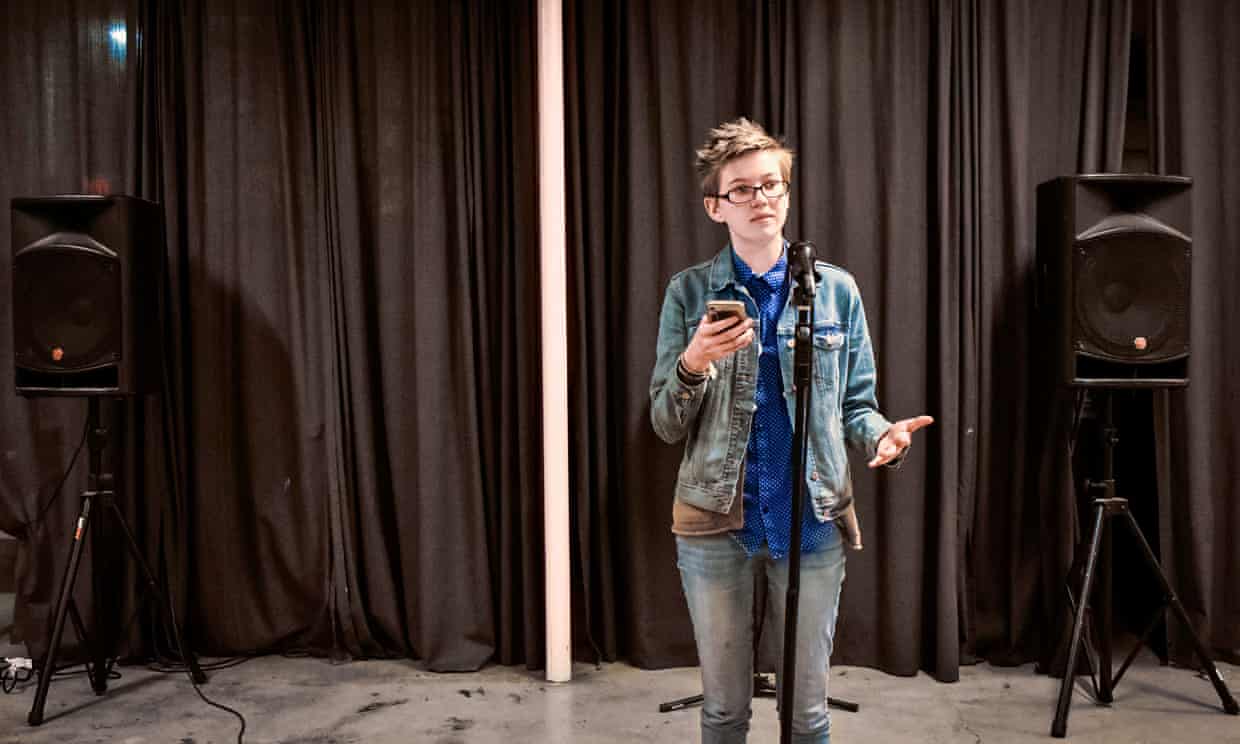
Kai added: “I know for many people, Twelve has led to jobs … to being able to go to college, to scholarships.”
Many involved with the group speak about the importance of “voice” – the honing of it, the recognition of it, the channeling of it into stories long messaged as unimportant or secondary or outside “tradition” .
The biggest challenge for facilitators, according Stephanie Ginese, Twelve’s director of special programs and a former assistant teaching instructor, is overcoming decades of marginalization and convincing students that “their story does matter. They may think no one wants to hear about their grandma’s rice and beans or what goes on in their neighborhood,” in part because “they’re not getting this education at school”.
Gray-Kontar’s mission, then, for Twelve Literary Arts is the recentering of voice, an effort of listening and validation that goes beyond one’s aptitude for literature or poetry.
“At the end of the day, what we are endeavoring to do is to inspire young people to participate in our democracy,” he said.
“They may or may not become Pulitzer prize-winning writers. But they will learn that their voice matters and when that their voice matters, they then understand that because you can use your voice, you are participating in this democracy.”
Follow Guardian Cities on Twitter, Facebook and Instagram to join the discussion, catch up on our best stories or sign up for our weekly newsletter